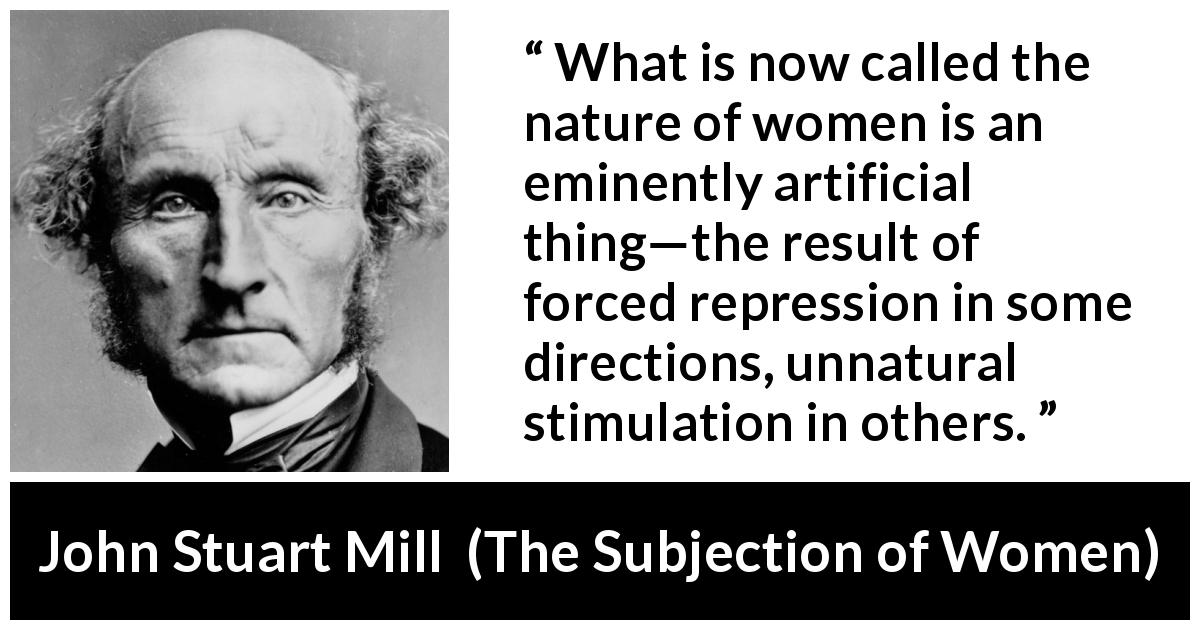



It rules out such sacrifice even if it would maximize the sum total of everyone's happiness. broadcast of a World Cup match that a billion spectators have been enjoying. It rules out the conscription of a worker to his or her certain death in order to repair a fault that is interfering with the live. Uncontroversially, this doctrine condemns the killing of an innocent person simply in order to maximize the sum total of happiness. Most deontologists find bedrock in the Pauline doctrine that it is morally objectionable to do evil in order that good will come of it. He argues that the fact that women subordination is a practice that is widely generalized, make it assume a While trying to do this, he acknowledges the fact that there exists a difficulty in championing the rights of women owing to the fact that women subordination is rooted in feelings-both theirs and men's. Mill begins his essay by declaring that "the principle that regulates the existing social relations between the two sexes-the legal subordination of one sex to the other-is wrong in itself and now one of the chief hindrances to human improvement and that it ought to be replaced by a principle of perfect equality admitting no power or privilege on the one side nor disability on the other" 1 Throughout this essay Mill tries to prove that the supposed superiority of men over women is not based on any rational grounds but on myth and custom. In his essay, The Subjection of Women, he tries to show that there has been some historical injustice to women to the extent that they are excluded from important functions in society simply out of some irrational bias exhibited by the male counterparts. This paper intends to critically examine Mill's views on the subjection of women in social, political and even economic concerns. His works include On Liberty and other Essays, Utilitarianism, System of Logic, Principles of Political Economy, and Considerations of Representative Government. Mill would later become a key advocate for utilitarianism, an ethical and political theory that views moral goodness as dependent on greatest happiness for the greatest number of people concerned and stresses the importance of representative government in politics. In his childhood he was an object of an experimental education in the hands of his father James Mill and Jeremy Bentham. John Stuart Mill (1806-73) was a Philosopher, Economist, Political thinker and a dominant figure in English intellectual life in the latter half of the nineteenth century.


 0 kommentar(er)
0 kommentar(er)
